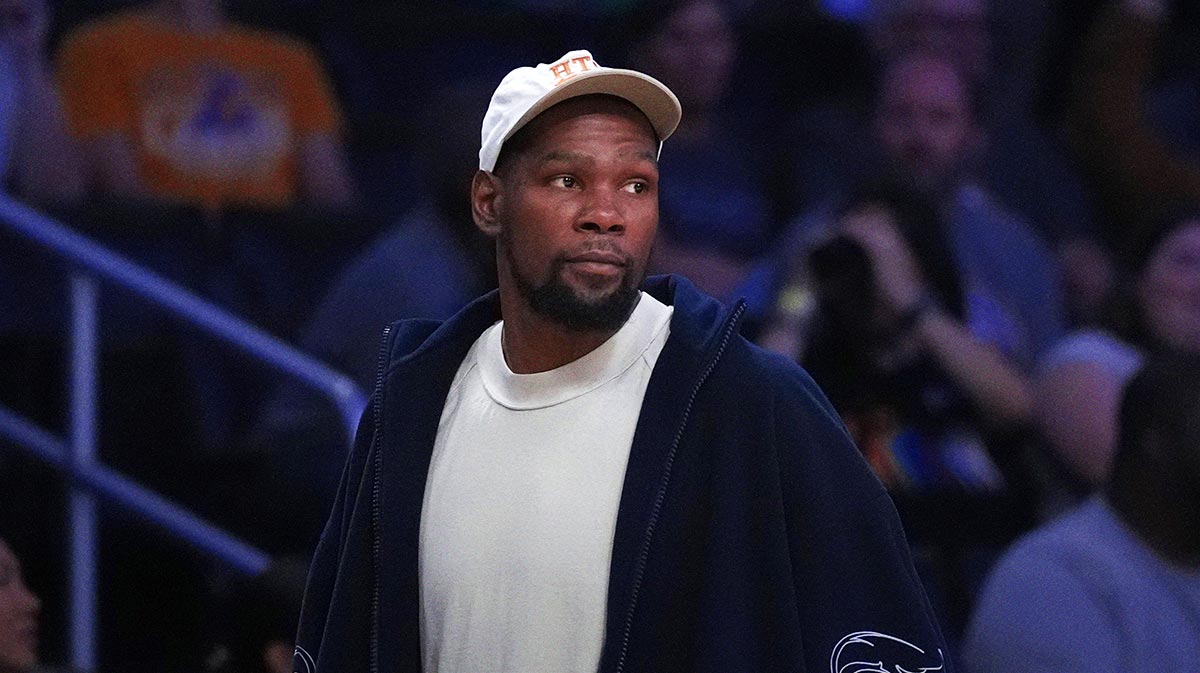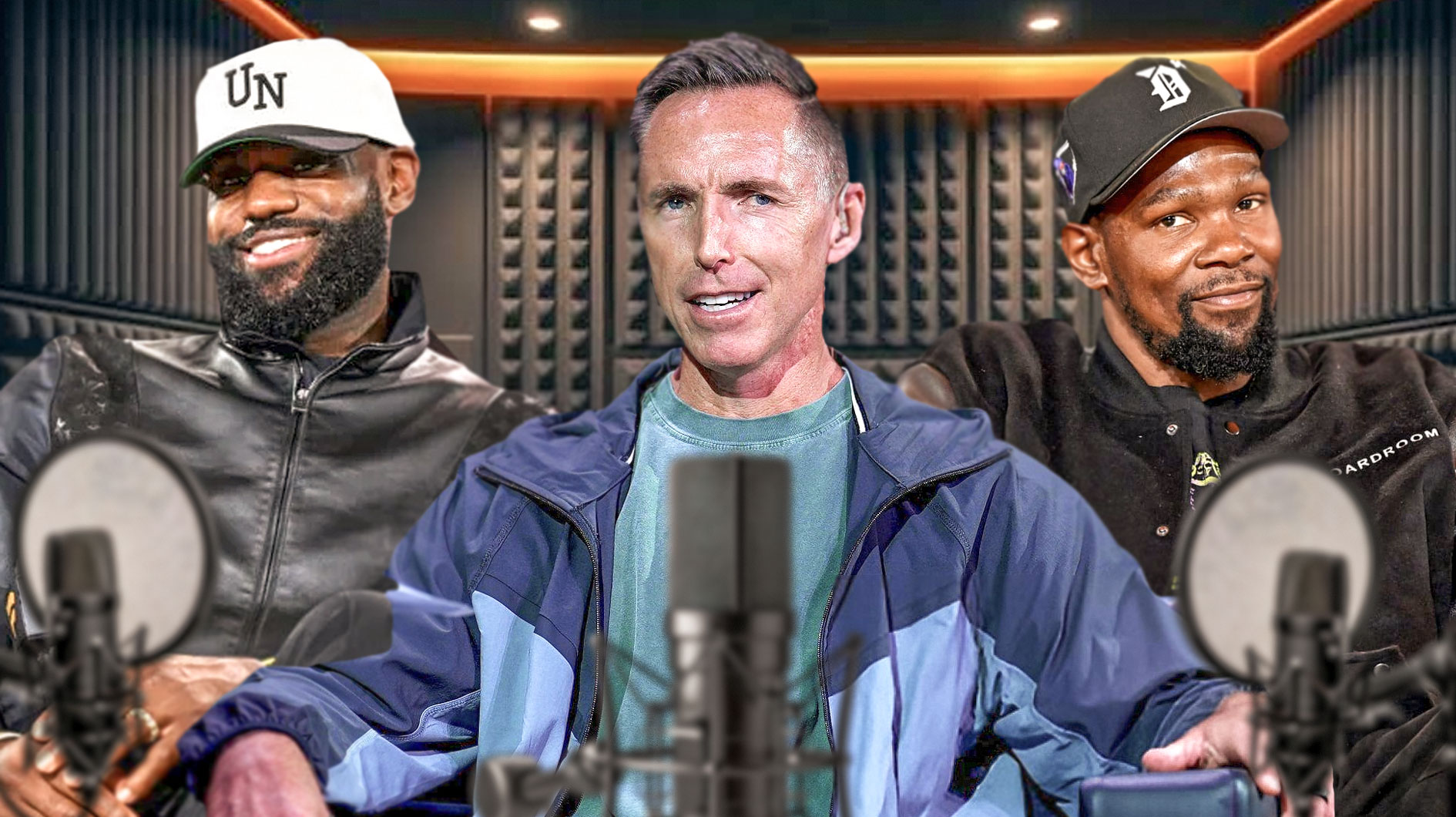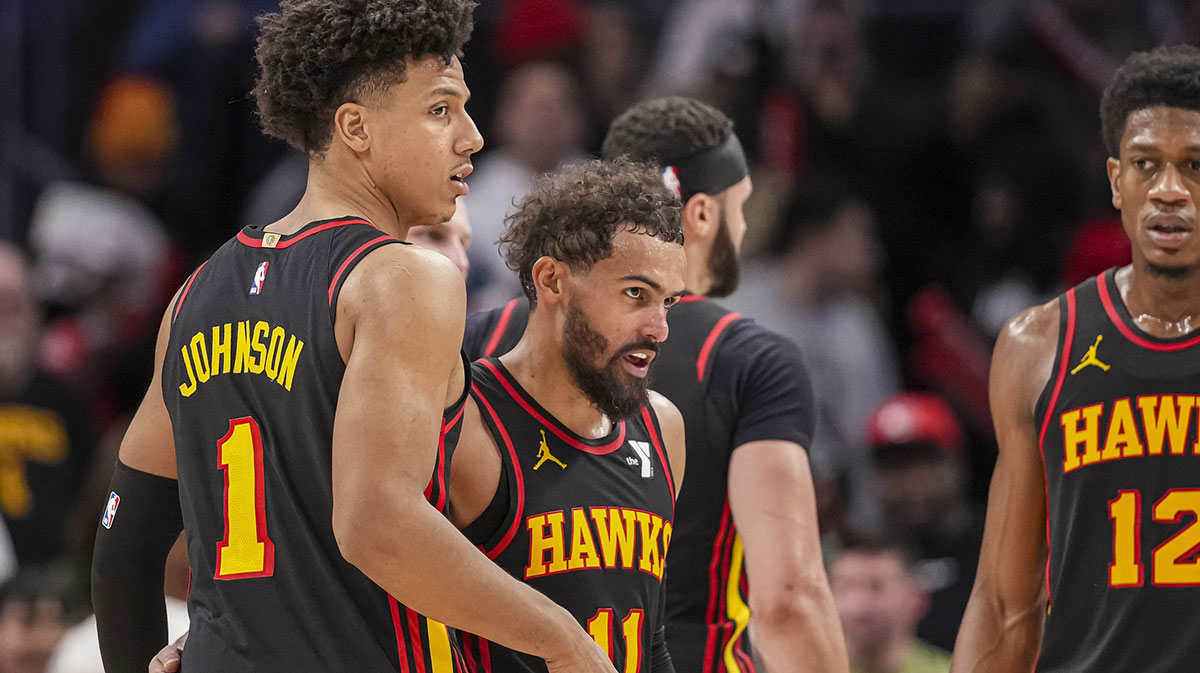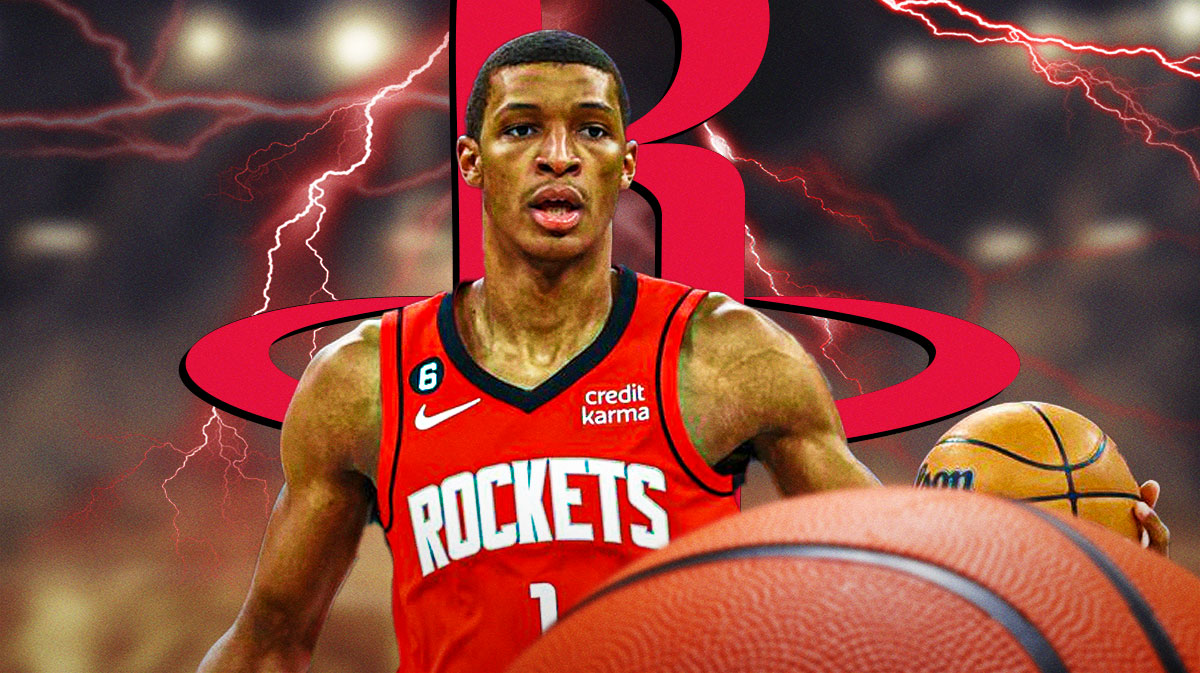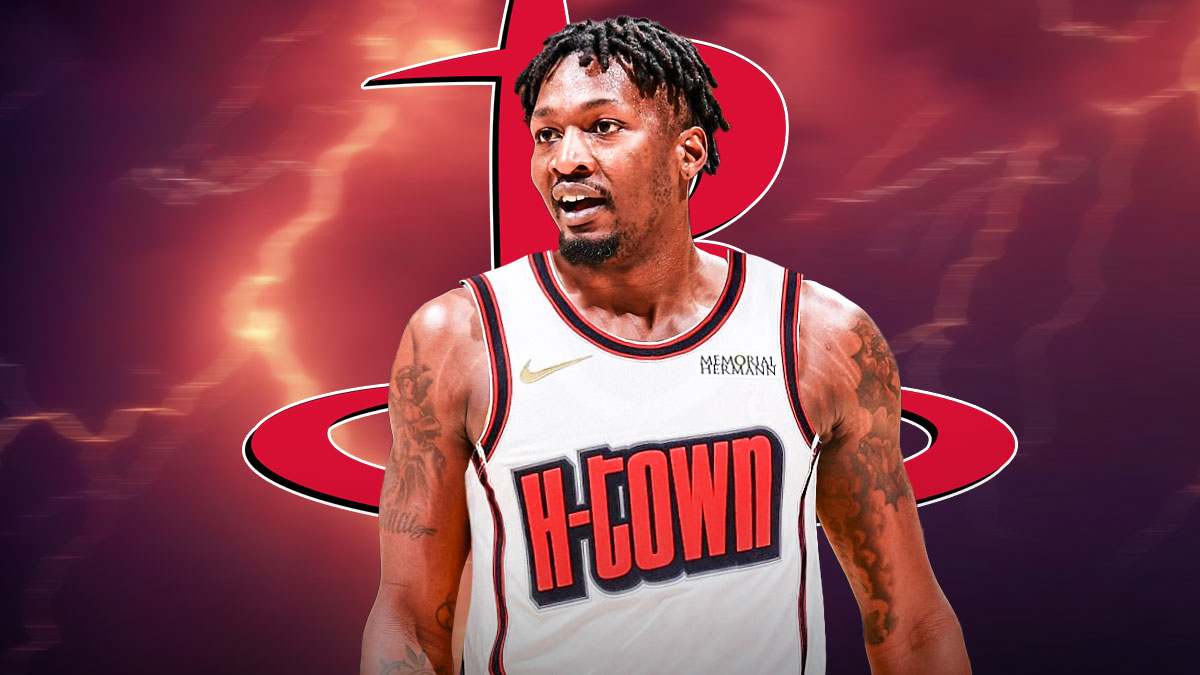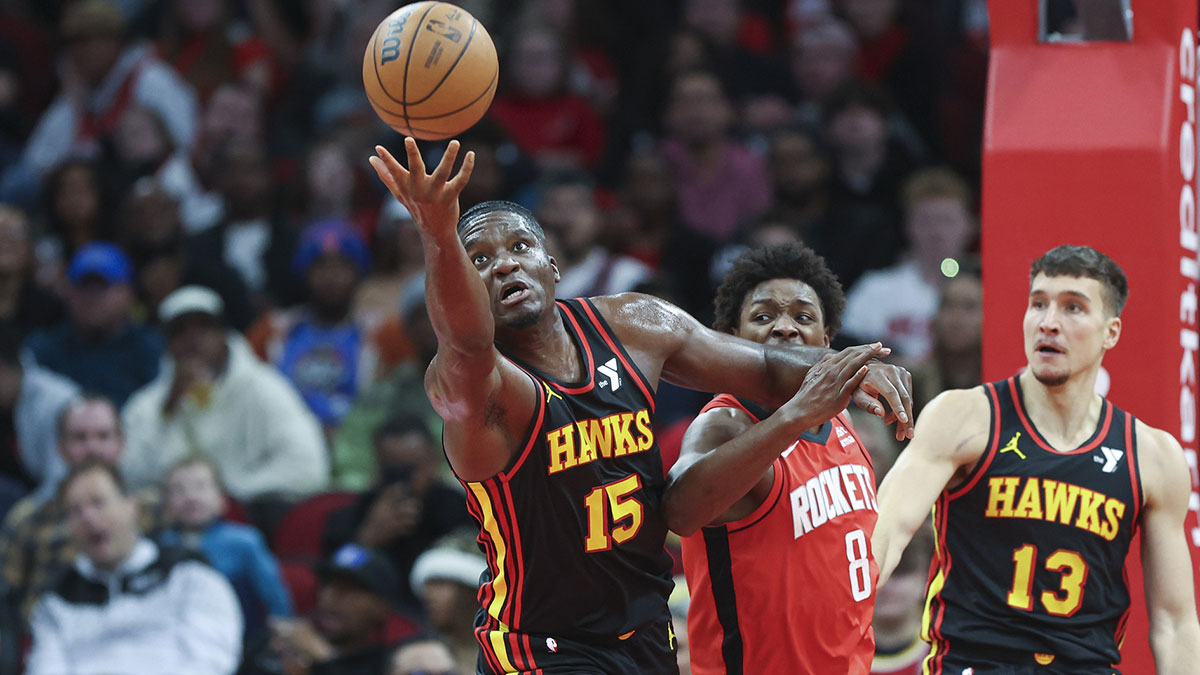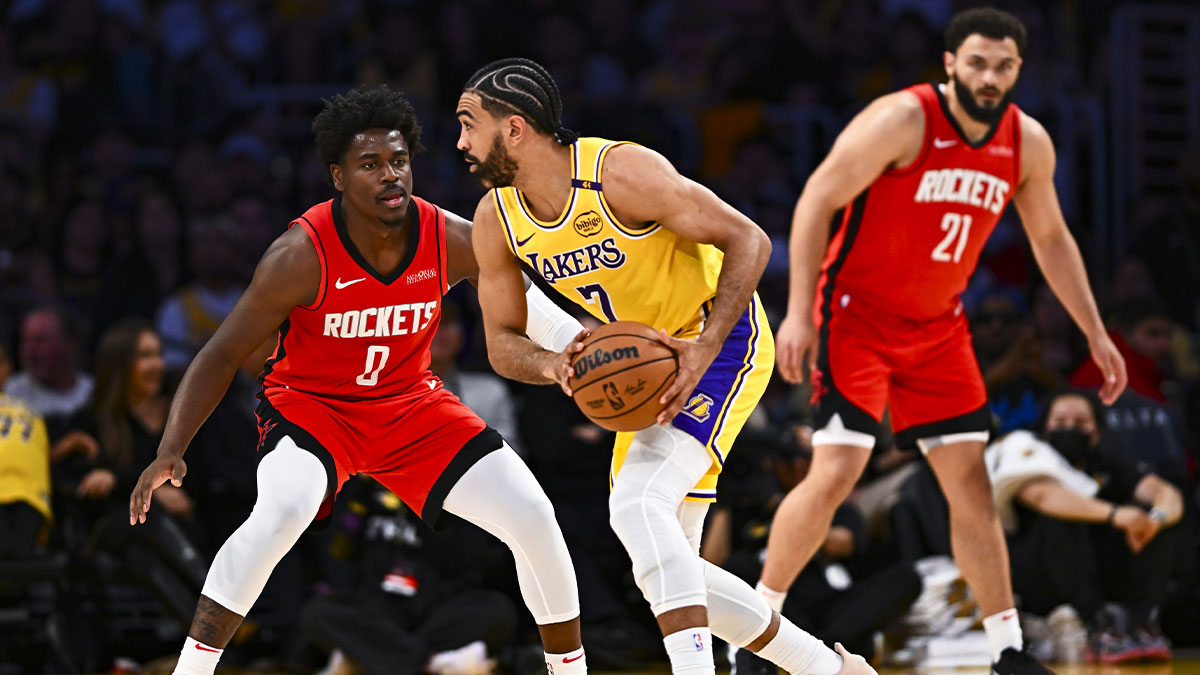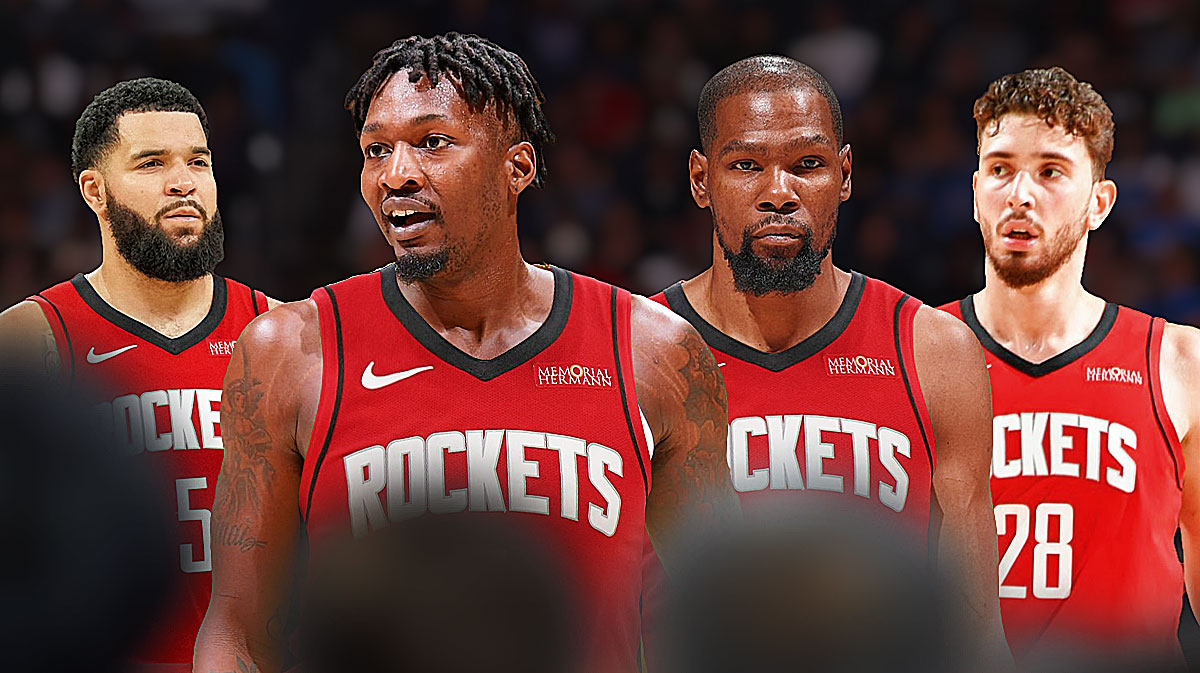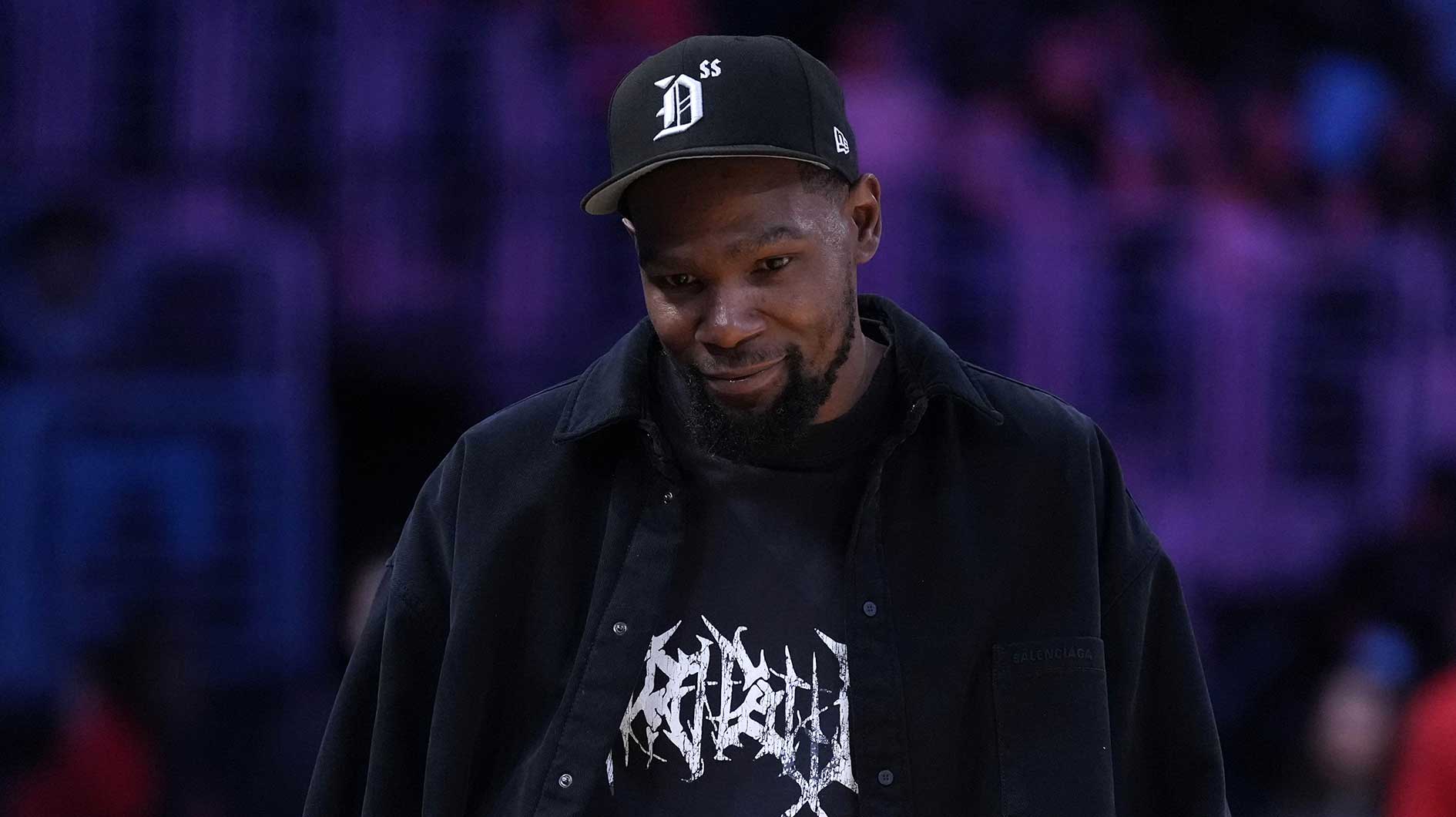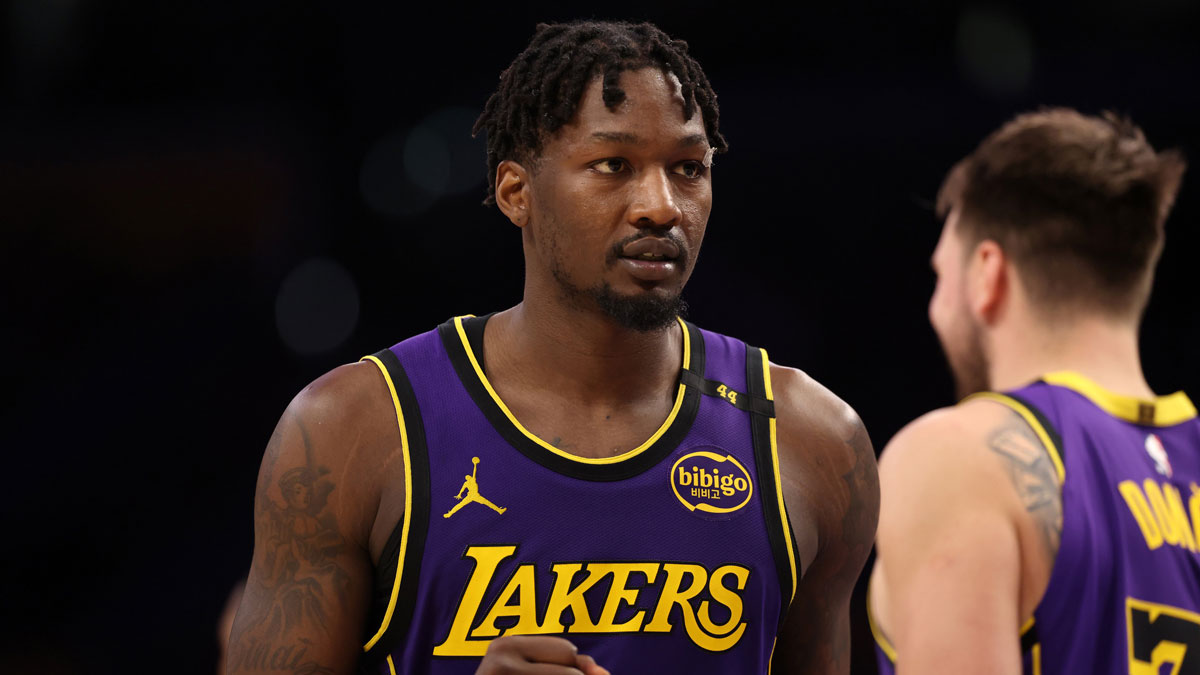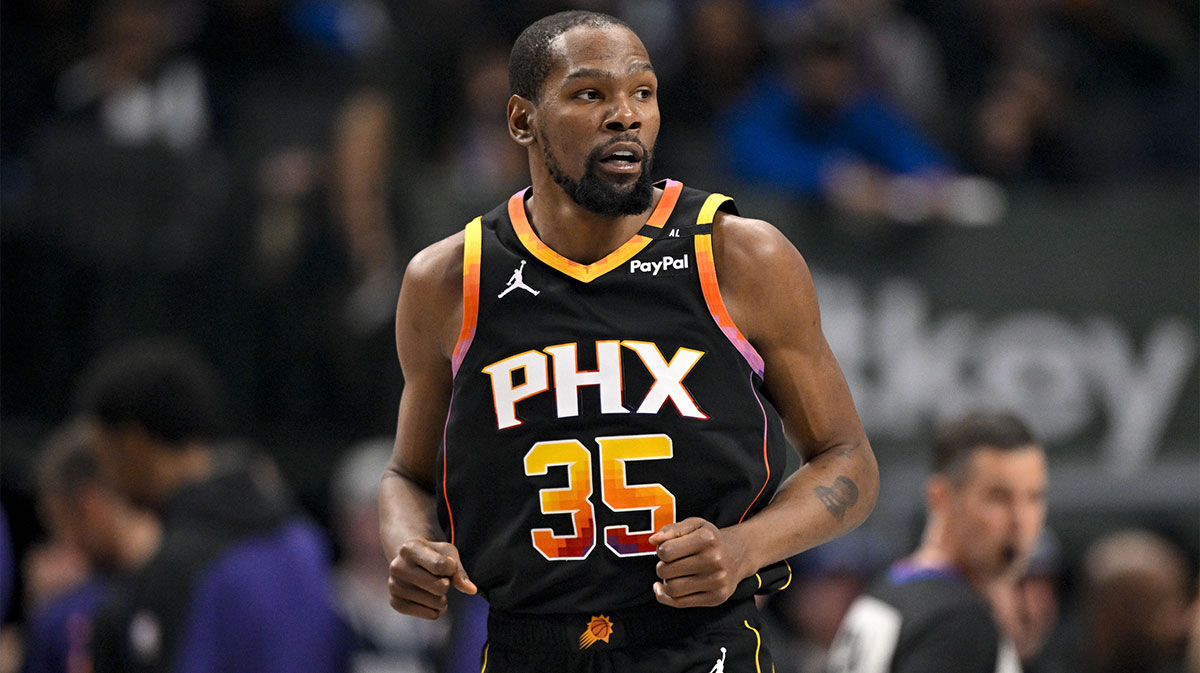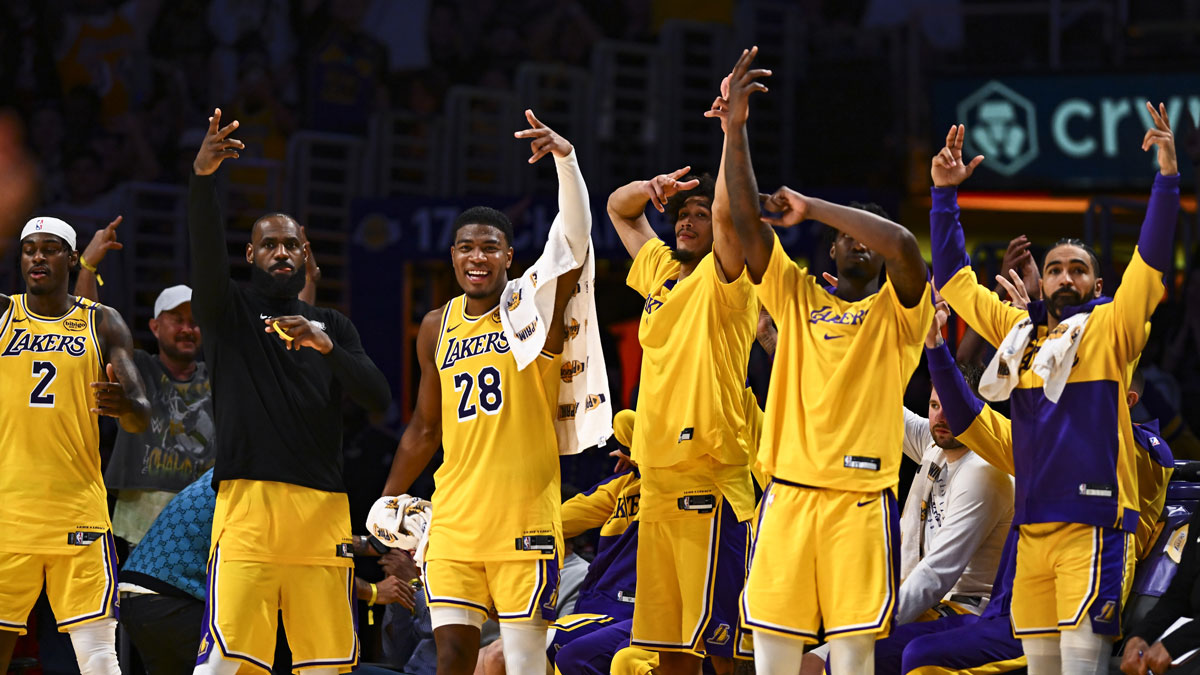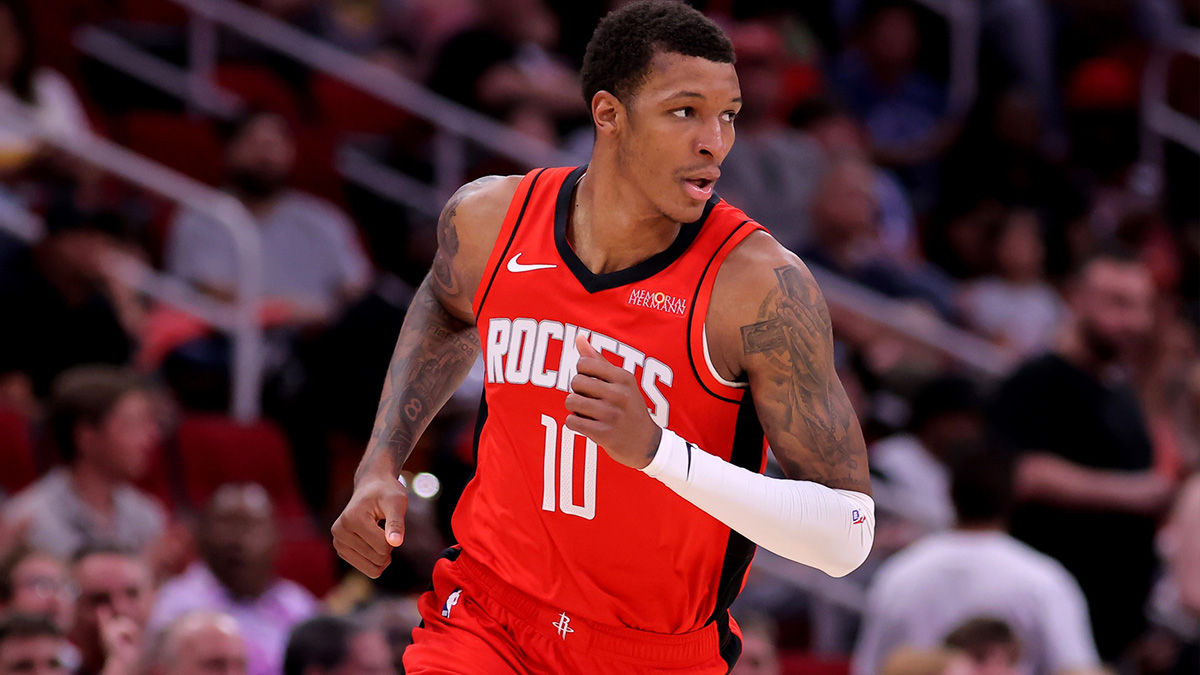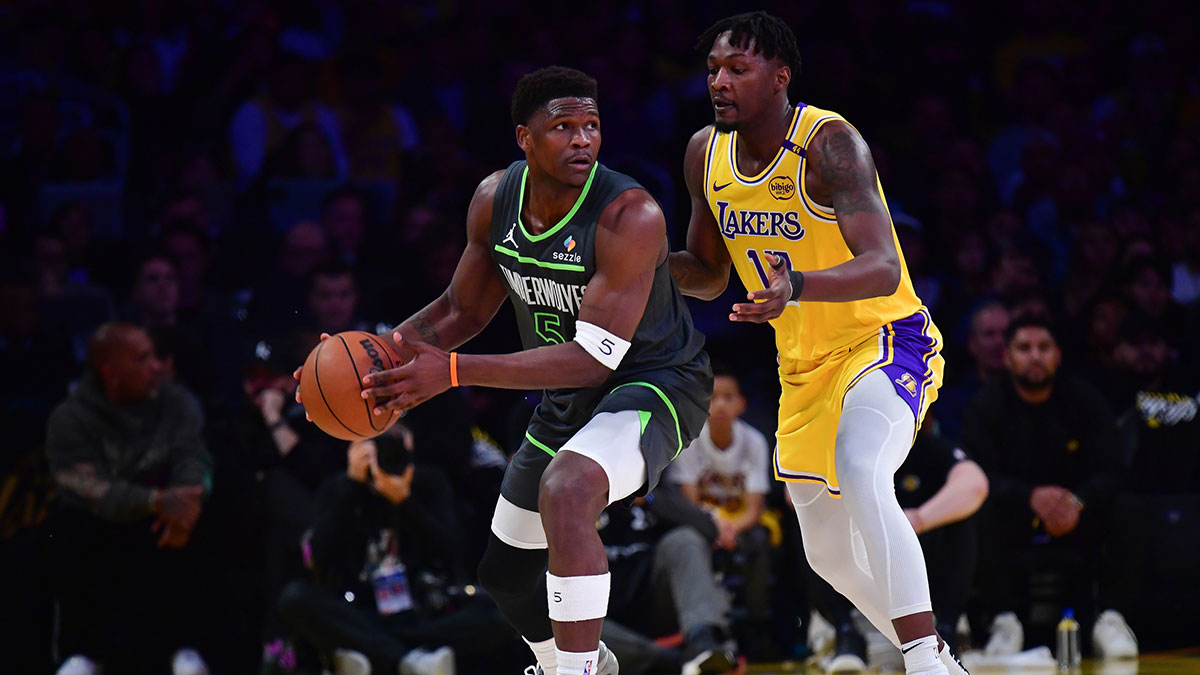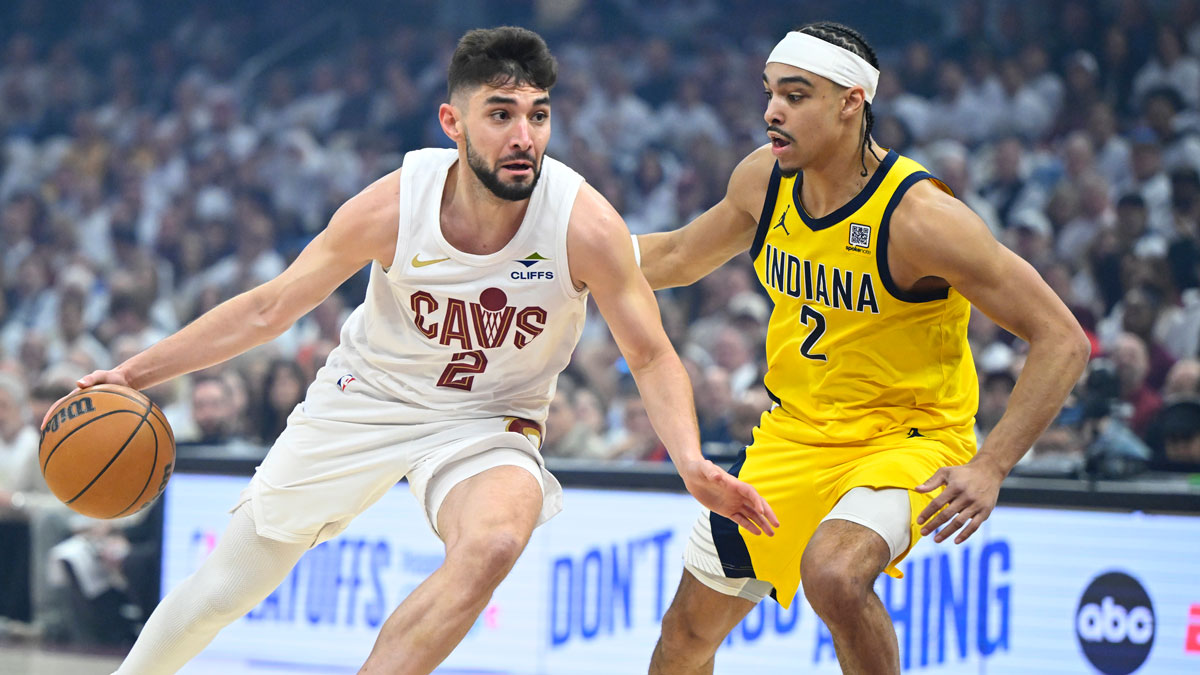HOUSTON — On a night where nobody in the building could stop Kevin Durant in the second half and everything seemed to fall into place for the Houston Rockets offensively, it was the Rockets' inspired energy and meticulous attention to detail that cut the series deficit to 2-1.
For them to be competitive and taken seriously in this matchup, they always had to accomplish two things. Like any all-time superstar will tell you, it's impossible to take everything away from a team's offensive game plan. Therefore, you must pick and choose wisely while keeping the mistake tally low. The Rockets' only chance to stay alive depended on them preventing the Splash Brothers, Stephen Curry and Klay Thompson, from achieving any comfortability through their off-ball motions. It also hinged on getting enough bites at the apple through second-chance opportunities. Through the defensive scheme deployed by assistant coach Jeff Bzdelik and the hunger of Houston's frontcourt, they fulfilled both requirements in Game 3.
Durant — 34 of his 46 points came in the second half and overtime — was the only reliable offensive hub for Golden State down the stretch. By switching everything — both on and off the ball — Houston didn't concede much to Curry or Thompson. When those two are being freed up, it makes it easier for Durant to operate in the post on ensuing possessions. The defense often fears the Warriors' screening action for their two guards to such a degree, they'll either be unable to flash double teams at Durant, or they'll have a few mental lapses that leave a cutter wide open.
Both Curry and Thompson were held in check, going a combined 13-of-39 from the floor and only getting five free-throw attempts between them. After a bombardment of pull-up jumpers for Durant gave Golden State a 94-93 lead with 10 minutes left in the game, the Rockets knew they had to send extra defenders at his isolations. If Houston was going to lose, it wasn't going to be because of Durant making them feel completely helpless.
“You all know already, KD's tough,” Paul said after the game. “Tough. At that height, you got to try to make him as uncomfortable as possible. Just try to make it tough on him. Try to make him use more dribbles or what not. And as we keep saying, in order to beat them, playing hard ain’t enough. You have to play smart. For anybody at home, watching him play, whenever you mess up … whop! Somebody hits a 3. So, we just have to keep communicating and try to get the right guys shooting shots. When KD is out there, we’re going to continue to make it tough on him. But, hopefully, we get the right guys that we want taking shots.”
Paul put the words to what we've seen from defensive coverages on Golden State all year long — even with they have their small-ball lineup on the floor, it still includes a non-shooter in Draymond Green and an average shooter in Andre Iguodala. The only way to give yourself a chance against them is to have your best defender (P.J. Tucker) roaming the floor like a defensive safety and sending extra coverage at Durant. Because Houston doesn't have anyone with the right combination of length and foot speed to truly bother any of these Durant releases, the only option part of a winning formula is to force it out of his hands:
However, the Rockets deserve credit for making life difficult for him in the first half. It allowed them to build a double-digit lead after it looked as if Golden State would be sizzling early. For the game, Durant was only 8-of-21 on shots from inside the arc, which is something Houston will certainly live with. They cut off the majority of the Warriors' transition game, arguably the biggest factor that allows Golden State's other shooters to find a groove. That comes down to Houston actually converting offensively to force the opponent to take the ball out of the net, but also sprinting back after long 3-point misses and not complaining about uncalled fouls.
They decided to eliminate the excuses and whining, reallocating that energy to shutting off the Warriors' favorite motions and closing the gaps on other shooters. Houston played a major role in Golden State playing against a set defense in the half court for 84.5 percent of their offensive possessions. In Game 2, that was 76.1 percent for the Warriors, which allowed them to pull away in the second half.
As a result, Curry wasn't able to take advantage of Durant's smooth offensive night. He shot 0-of-6 through the fourth quarter and overtime, missing jumpers, layups, and even botching a dunk in the final 30 seconds of action. In what has otherwise been a phenomenal run in his playoff career, Saturday was perhaps the worst and most puzzling performance in the postseason, at least in the Steve Kerr era.
“The way we played as a team — we scrapped, clawed & gave ourselves a chance to win,” Curry said. “KD was amazing in the second half, Andre hit a big shot, Draymond was consistent with playmaking all night. In this building, we know it's tough when they go on those type of runs, but we still had a couple chances to win down the stretch. So, obviously, I'm thinking about what I can do better and how I can elevate my game.”
In a game that Golden State only coughs up eight turnovers and shot 25-of-47 (53.2 percent) on uncontested looks, you would expect the series to be 3-0 with a sweep on the way. That's where the second part of the equation comes in for Houston, who played as every team should with its back against the wall. Hustling on the boards for 17 offensive rebounds, 10 coming from only Tucker and Clint Capela, they were able to keep the shot attempt totals relatively even despite the Warriors taking extra care of their possessions.
The path to Houston making this a long series is to continue the extremely slow playstyle. The pace of Game 3 was only 93.2 possessions per 48 minutes, which is right in line with what the Rockets want to do by attacking mismatches and allowing Harden to snap out of his 3-point struggles. He converted on numerous step-back triples on Saturday against the outstretched arms of Iguodala and Curry, usually after Durant started on him and eventually was forced to switch.
“(Harden) is deceptively quick,” Durant said. “He uses the change-of-pace and his speed is really at the elite level probably in the history of the game. As far as, slowing down, lulling you to sleep and then speeding up. So he uses that in pick-and-roll or isolation situations, and I think it throws defenders off when he's probing and then boom, he bursts to the rim. Or when he stops on a dime and shoots a pull-up 3. We have to be aware every second he has the ball and be ready to guard. He's an unstoppable player, but you can definitely make it hard on him.”
It was a battle between two offensive geniuses in Game 3, with Harden going for 41 points on 32 shots and Durant slightly more efficient at 46 on 31. The difference for the Rockets? They generated enough open looks for a running mate, which happened to be Eric Gordon. So far in this series, Gordon's 24 points per game on 65.9 percent true shooting is actually more than Mike D'Antoni and the Rockets could've asked for. He has attacked Curry and Thompson off the dribble by using his brawny frame to create separation to finish through them, even if he doesn't blow by anyone on the move. His seven 3-pointers in the home win, though, were far more impactful than anything Curry or Thompson were adding to Durant's surge for the Warriors.
“I think sometimes we got more confidence in Gordy than he's got in himself, ” Paul said. “For real, because he has unlimited range. When you kick it to him and he's five steps behind the 3-point line, that's like a regular shot for him. Everybody else will be like, ‘wow,' and we're used to it. And he can drive, defend, and we just really appreciate him around here.”
Even with everything going the right way for Houston on the glass, from beyond the arc with Harden and Gordon, and Curry being a no-show down the stretch, Golden State still had a chance to take the lead on its final possession of regulation. It could definitely be taken as a positive heading into Game 4 on Monday.
Green, who put things into perspective after the game, knows they blew a chance to make this a quicker series than anyone anticipated.
“We didn't get 50-50 balls down the stretch and we gave up a couple offensive rebounds in overtime,” Green said. “That was really the difference. When you're on the road trying to win a playoff game, you have to come up with those. That was pretty much the tale of the game.”
Draymond Green postgame:
"They outrebounded us by 20 or so. We just got to clean those little things up. Overall, I like where we're at. You know, the way we shot the ball, most teams would've lost pretty bad. So, we gave ourselves a chance and that's all we can ask for."— Shane Young (@YoungNBA) May 5, 2019
Game 4 is Curry's chance to correct everything that has been going wrong for him in this series. The shots aren't going. The fouls continue to haunt him. Houston's confidence against him is steadily rising.
Does Green, who has been around the various ups-and-downs of Curry's playoff narrative, believe it's a cause for concern?
“No matter if he's struggling or not, when he's on the floor, he opens up a lot of things for everyone else,” Green said.
“He'll still have an impact that way. We know his shot will start falling.”

